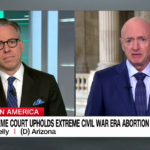
Credit scores hit a record high. But American consumers are not OK
Credit scores rose to an average 711 in July, an all-time high since tracking began in 2005 and five points higher than a year ago, according to the Fair Isaac Corporation, which calculates FICO scores, the most commonly used scoring system.
Over the past decade, credit scores have been steadily climbing. That’s good news because higher credit scores are a measure of credit worthiness to potential lenders and enable people to get lower interest rates on loans and mortgages.
But the recent upward trend isn’t an accurate picture of what’s really going on with consumers.
Credit scores are currently being propped up by things like government stimulus payments and delayed mortgage payment plans for homeowners, said Matt Schulz, chief industry analyst at CompareCards.com by LendingTree.
“Because of all the deferment we’re seeing and some stimulus, I’m not sure how predictive these credit scores will be of people’s financial situation in the future,” said Schulz.
And these high scores are unlikely to last given that the national unemployment rate is at 7.9% and a second wave of the coronavirus threatens to plunge the economy back into recession.
“The scores will come down,” said Schulz. “There is no way, barring significant government stimulus in the future, that unemployment can stay really high and credit scores remain really high. That’s not how things work.”
Scores reflect the past, not future
Nearly 35% of a FICO credit score is determined by your ability to stay current with payments. But it takes a month or so of missed payments to see a hit to your credit score.
It takes even longer — or doesn’t register at all — if you’re on a payment program with your lender that allows you to delay or make partial payments.
Following the Great Recession, credit scores did not hit their low until 2009, more than a year into the recession, according to Ethan Dornhelm, vice president, FICO scores and predictive analytics.
But that lag will likely be extended during the Covid-19 pandemic because of the government stimulus payments and lender accommodations that have helped those who are struggling to bridge the gap.
“While millions of US consumers have lost their jobs or experienced disruption to their income since the onset of the pandemic,” said Dornhelm in a statement, “the combination of government stimulus programs, such as enhanced unemployment benefits, as well as payment accommodation programs being offered by lenders, appear to have thus far enabled many consumers to avoid falling behind on their bills.”
Despite high unemployment, the number of people missing payments was down in July when compared to January (before the pandemic), according to FICO. In July, just 7.3% of people had a credit payment that was 90-days or more past due in the prior six months, compared to January, when 8.1% of people were delinquent.
A growing divide
While the pandemic has turned the financial fortunes of some Americans upside down, it’s left others financially flush.
“There is no question there is a bit of a divide going on here,” said Schulz. “You have an awful lot of Americans who are doing pretty well and have been paying down debts, and an awful lot who are really, really struggling. The weird thing is, because of government stimulus and widespread payment deferrals, both groups may have credit that looks like they are doing well.”
Overall, consumer debt levels are decreasing, according to FICO, and this also boosts scores. It isn’t clear if people are reining in spending in the face of economic uncertainty or just that there are fewer opportunities for spending on things like restaurants, entertainment and travel. But either way debt has gone down substantially.
As of July 2020, US consumers had an average of $6,004 in credit card debt, down from $6,934 in January, according to FICO.
For people who are employed and spending less, the pandemic may have afforded them the opportunity to pay down debts.
The amount you owe can account for 30% of your FICO score and a reduction in credit usage can bring about a measurable gain in a FICO score.
How to protect your credit score
“It’s never been easier to check your credit report and get your credit score,” said Schulz. “If you haven’t done that in the last little while, do it today.”
The credit reporting agencies –TransUnion, Equifax and Experian — offer free credit reports at AnnualCreditReport.com. For the next six months, you can check your report for free weekly.
Other tools, like MyLendingTree or CreditKarma, offer some version of your credit scores. Separately, your credit card issuer may also offer you access to your credit score for free.
What you are looking for are sharp shifts in the numbers, which could indicate a mistake or fraud.
“You’ll want to make sure that any payment arrangement that you made really isn’t impacting your credit score,” said Schulz. “Mistakes happen.”
If you’re struggling with your credit, don’t panic, said Schulz. Credit is incredibly important, but during dark financial times, other things, like food and health care, become far more important, he said.
But eventually, people will need to restore their finances.
“Eventually these deferred bills will come due and the saved money from the previous stimulus will run out, and that’s when things may get pretty darn dicey for a lot of Americans,” said Schulz.















